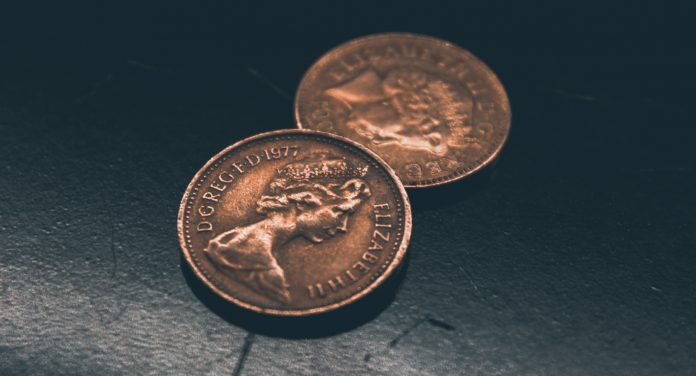The British pound (GBP) is higher against the euro (EUR) on Monday.
- German May manufacturing PMI misses estimates
- UK May manufacturing PMI narrowly beats forecasts
- Some British children return to school
- Broader markets positive, brush off US-China tensions
GBP/EUR was lower by 12 pips (+0.10%) to 1.1106 as of 3pm GMT.
A dip below 1.11 in early trading stalled out and the currency pair rallied over 100 pips to retake the 1.12 barrier. Last week GBP/EUR exchange rate dropped -0.39%.
GBP: UK Final Manufacturing PMI tops estimate
The British pound managed to squeeze out some solid gains on Monday after the UK got the better of Germany in May manufacturing performance relative to estimates. The UK Final May manufacturing PMI came in a 40.7, up slightly from the initial estimate of 40.6.
Actually the story is similar in the UK and Europe with May marking a significant improvement in manufacturing activity from April’s record decline. However, the improvement is largely ‘base effects’ because April was so bad. Some of the most important data will arrive in June when lockdown restrictions are eased more significantly.
The easing of many UK restrictions saw some English schools reopen on Monday and traders were optimistic despite concern from some health officials that the rate of transmission (the R-rate) remains dangerously close to 1.
EUR: German May Manufacturing PMI misses
The disappointing data out of Germany held back a multi-day rally in the euro that has carried it to two-month highs over the pound. While data from France, Spain and Italy came ahead of expectations, it was Europe’s manufacturing powerhouse Germany that missed estimates. German May manufacturing PMI slipped to 36.6 from 36.8 initially estimated. Given the weight of Germany’s economy in Europe, the miss dragged down the figure for the entire Eurozone, which fell to 39.4 from 39.5.
Commenting on the possible economic implications of its own data, Markit noted: “While we are still set to see unprecedented falls in industrial production and GDP in the second quarter, the survey brings hope that the goods-producing sector may at least see some stabilisation – and even potentially a return to growth – in the third quarter.





